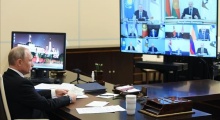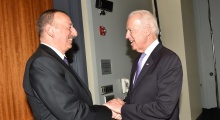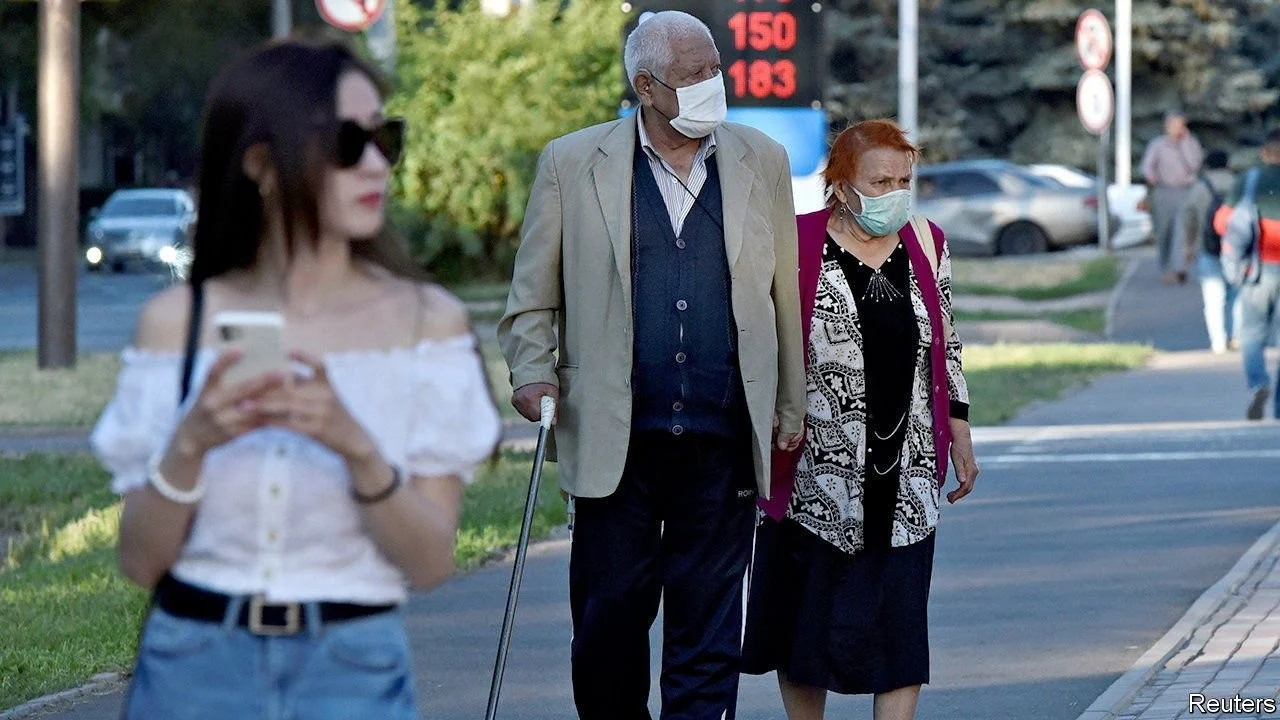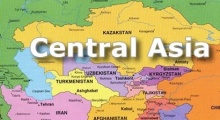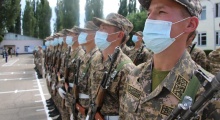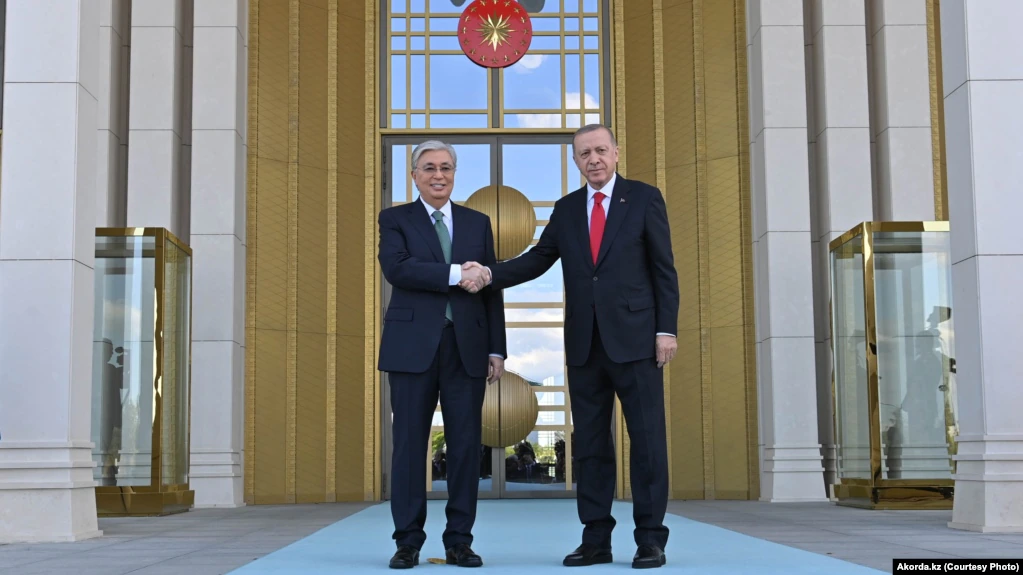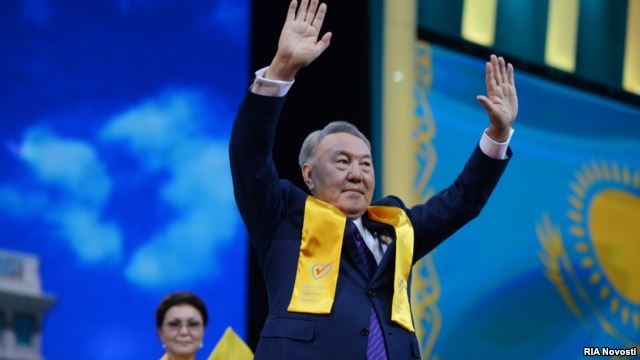 Two Central Asian leaders recently secured comprehensive victories in presidential elections, cementing them in power until the end of the decade. But with the falling price of oil and a regional economic downturn emanating out of Russia, as well as the crisis in Ukraine, the future of both resource-rich countries is now less certain.
Two Central Asian leaders recently secured comprehensive victories in presidential elections, cementing them in power until the end of the decade. But with the falling price of oil and a regional economic downturn emanating out of Russia, as well as the crisis in Ukraine, the future of both resource-rich countries is now less certain.
In Uzbekistan, 77-year-old Islam Karimov won re-election with 90 per cent of the vote on March 29. In neighbouring Kazakhstan, 74-year-old Nursultan Nazarbayev won with 97.7 per cent on April 26. Neither faced genuine opposition.
The long rules of Karimov and Nazarbayev began when their countries were ruled from Moscow as part of the defunct USSR. Appointed by the Kremlin as communist bosses of Soviet republics in 1989, they unexpectedly inherited independent states when the USSR collapsed two years later. They have had a firm grip on their countries – located in the geopolitically strategic Central Asian region, sandwiched between Russia and China – ever since.
On May 13, Uzbekistan will mark the 10th anniversary of violent clashes between demonstrators and security forces in the city of Andijan, depicted by Karimov as an uprising by religious extremists. Many observers dispute this, and some also suspect the death toll was higher than the officially reported 187 fatalities. Kazakhstan suffered deadly unrest in 2011, when an oil workers' strike turned violent and 15 civilians died.
For the West, Uzbekistan is a staunch ally in the "war on terror" and offered security cooperation in the now wound-down operation in neighbouring Afghanistan. Karimov presents himself as a bulwark against religious radicalism, although campaigners argue that his crackdowns on pious Muslims (with many languishing behind bars) feed rather than contain extremism. Karimov and Nazarbayev, who rule secular states with mainly Muslim populations, share deep suspicions of political Islam. There is also evidence of Kazakh and Uzbek militants joining up to fight with extremist religious groups such as ISIL.
There is no doubt that Nazarbayev and Karimov ride a wave of public popularity at home.
"Nazarbayev's done a lot for the country; we have stability and ethnic harmony," enthused Shukhrat Yuldashev, a 20-something voter from Almaty, summing up popular sentiments.
Nazarbayev and Karimov point to upheaval in countries from the Middle East to Ukraine as a warning against political change.
"There's no war, that's the most important thing," said another Nazarbayev voter, Gulnara Bekbergenova, giving the example of the conflict in post-Soviet Ukraine as a cautionary tale. "Everything's thanks to the wise policy of our president ... God give him health so he rules this country for long years ahead."
Voters credit Nazarbayev with delivering rising living standards and keeping the peace among Kazakhstan's myriad ethnic groups (minorities including Russians, Ukrainians, Uzbeks and Tajiks form a third of the population of 17 million).
This reverence comes, at least in part, off the back of an oil boom that has driven steady growth since 2000 – but the economy slowed last year, as Astana struggled with falling prices and the repercussions rippling from western sanctions against Russia, a major trading partner for Kazakhstan, over the Ukraine conflict. This year the government forecasts growth of 1.5 per cent (compared with an annual average of 6 per cent over the previous five years).
Yet Astana, unlike Tashkent, has wholeheartedly embraced market reforms: Uzbekistan's economy retains features of a Soviet-style command economy, highly state controlled and benefiting a clique of players surrounding Karimov, while the rest of the population struggles by on low salaries. Many families depend on remittances sent home by migrants in Russia for survival – and they are losing their jobs as Russia's economy tanks. Remittances to Uzbekistan dipped by 43 per cent in the final quarter last year and are forecast to fall by 30 per cent this year, according to the World Bank, which puts the value of remittances at equivalent to 12 per cent of Uzbekistan's GDP. Nose-diving economies could fuel dissent in Uzbekistan and Kazakhstan, both of which have young populations: in Uzbekistan, 45 per cent of the population is under 24, and in Kazakhstan 41 per cent.
The elections have reinstalled Karimov and Nazarbayev in office until 2020, but the thorny issue of political succession continues to loom.
"The question of what will happen after the elections is more significant than the elections themselves," says Dosym Satpayev, director of the Kazakhstan Risks Assessment Group think tank.
"We don't know what would happen if Nazarbayev were to die suddenly in office," says Alex Nice, Kazakhstan analyst at London's Economist Intelligence Unit. "Achieving a smooth transition of power ideally requires Nazarbayev's involvement and blessing. The longer he stays in power, the greater the political uncertainty will be.
"The short-term economic outlook is not encouraging," he says. "As a major oil exporter, Kazakhstan is suffering from the sharp fall in oil prices in the second half of last year.
"The slowdown in Russia's economy has also hit demand for Kazakhstan's non-oil exports. We have also seen a sharp slowdown in household spending and weak business confidence and investment."
Nice says the administration has begun to address the difficulties by way of a stimulus package but more needs to be done.
Businessmen, investors and the general public are nervously eyeing Kazakhstan's currency, the tenge, under pressure because of the depreciation of the rouble in neighbouring Russia. Kazakhstan devalued it last year, creating short-lived economic chaos and a spate of small public protests, and expectations of a post-election devaluation are high.
"The most pressing priority for the authorities is to adopt new mechanisms to restore confidence in the tenge," says Nice. "A lot of people are expecting the tenge to be devalued again, and as a result they've shifted a lot of assets into foreign currency. This is making it very difficult for banks to lend. The government is trying to offset this with a major stimulus programme, but growth is likely to be very weak this year."
Speculation about what will happen after the long rules of Nazarbayev and Karimov eventually come to an end has been rife for years, and behind-the-scenes infighting over the succession has long been waged.
The most spectacular power struggle has been in Uzbekistan, where a Shakespearean feud erupted in 2013 pitting the president's eldest daughter, Gulnara Karimova, against her mother, Tatyana Karimova, her sister, Lola Karimova-Tillyaeva, and the mighty security service chief Rustam Inoyatov. Featuring vitriolic Twitter outbursts and outlandish accusations of the president's wife dabbling in witchcraft, the feud culminated with the once-omnipotent Gulnara locked up under house arrest and embroiled in corruption allegations at home and abroad. No one is sure what the president thinks, but this has put paid to rumours of a planned Karimov dynasty.
Rumours also circulate in Kazakhstan, with whisperings that Nazarbayev is eyeing his eldest daughter, legislator Dariga Nazarbayeva, or her son, Nurali Aliyev, deputy mayor of Astana, as his successor. Yet many analysts view regime insiders from outside the ruling families as more probable candidates: in Uzbekistan, prime minister Shavkat Mirziyoyev or his deputy Rustam Azimov; in Kazakhstan, intelligence chief Nurtay Abykayev, defence minister Imangali Tasmagambetov or Almaty mayor Akhmetzhan Yesimov.
While politics-watchers gaze into crystal balls seeking the names of the next presidents, of far more importance is "the question of the political institutions on which the successor must rely", says Satpayev. After more than a quarter of a century in which Nazarbayev and Karimov have run their countries with a tight grip, the new leaders of Kazakhstan and Uzbekistan will inherit institutions designed around the forceful personalities of their predecessors. Stepping into their shoes may be a tough act to pull off.
Joanna Lillis is a freelance journalist based in Almaty, reporting on political, economic and social affairs.
www.thenational.ae, April 30, 2015




